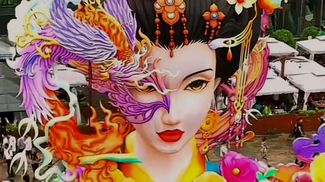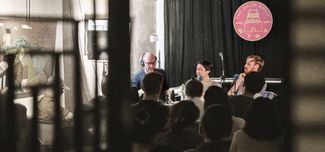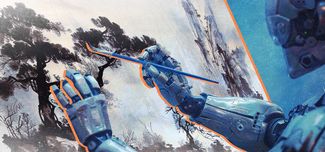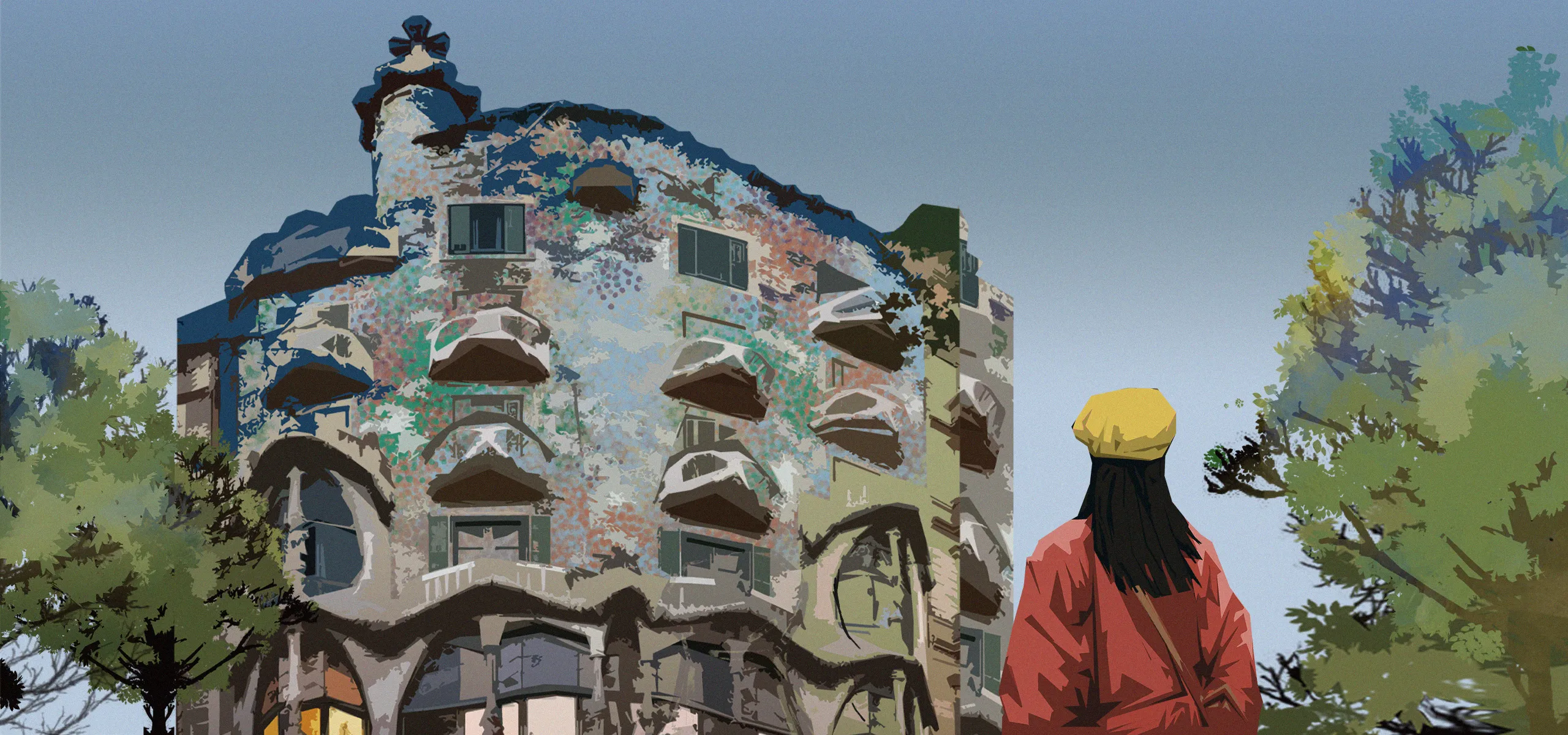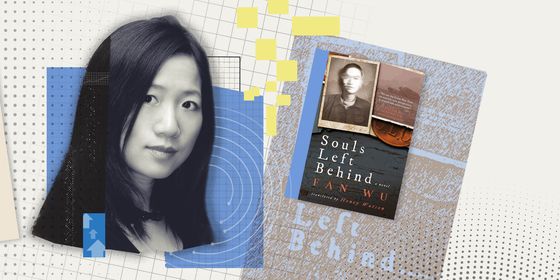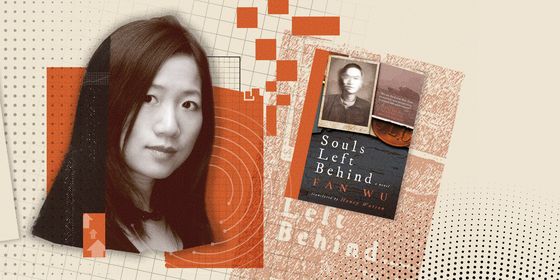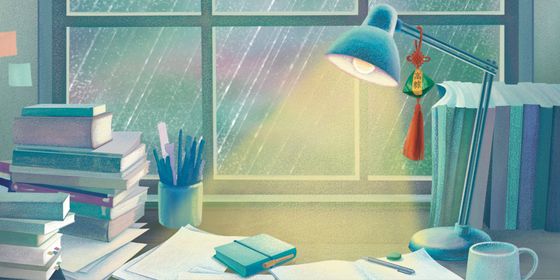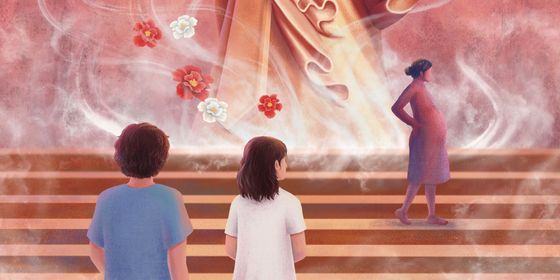A tale of migration and missed connections by Chinese author Zhang Wanhe
0
“Five hundred sheep,” Nguyen Nhu Quynh muttered to herself, fixated on the TV, “and none of them mine.”
On the screen, five hundred sheep were being prepped for a journey from China across the Vietnamese border. Ten trucks rolled toward neat formations of sheep herders, arrayed like a reception committee on both sides of the highway.
Nhu Quynh had a sheep farm. Sheep, at one time, were the only thing that mattered to the family. They were more important than people. This is what Nhu Quynh’s husband often said. But now her sheep farm had no sheep.
She tapped the screen. “Look at those sheep,” she said to her husband. “They’re gorgeous!” To Nhu Quynh, this was a sacred image. Sheep, after all, were not merely sheep, but stabilized borders and friendships between neighboring states. Sheep were more than animals. Sheep were the sign, the symbol, the sublime...
Nhu Quynh’s husband knew that she was not talking about the sheep on the old television set. He knew that in her mind, she was seeing the hundred head of sheep on the family farm before their sudden deaths.
The sheep farm had been passed down to Nhu Quynh by her grandfather.
She switched off the TV, rose, boiled tea, and drained one cup after another. Her husband had told her about how the sheep were transported to the veterinary station. To avoid any chance of the virus jumping to humans, they were culled and burned. The incineration was set for late at night, on a date near the start of the month. Nhu Quynh refused to attend. Her husband took care of everything.
The carcasses were stacked, jowl to jowl, haunch to haunch, five meters high on transport trucks. The workers at the veterinary center dragged them away on carts. As they labored, they muttered to themselves, cursing the stench.
When he returned, Nhu Quynh’s husband told her that some of the sheep were still alive and wept as they were tossed into the incinerator. “How do you know they were crying?” she asked her husband. “Did you see them crying?”
“I saw them crying,” Nhu Quynh’s husband said solemnly. He told her about how the sheep were dragged from the truck, and how they shed tears in the moments before they were dumped into the oven.
Nhu Quynh’s husband mimicked the workers dragging and dumping the sheep.
“They weren’t being gentle,” Nhu Quynh’s husband said.
Nhu Quynh didn’t believe that sheep could weep. She had seen dogs and cats crying, but never a sheep.
“Of course sheep can cry,” Nhu Quynh’s husband said.
Nhu Quynh wondered what could make a sheep weep as it faced its death. Could a sheep have regrets? Did they curse fate for making them a sheep in this life? As these thoughts went through her mind, Nhu Quynh felt as if she could see the sheep being incinerated.
Although she could have passed for younger, Nhu Quynh was in her fifties. She and her husband had planned to sell the hundred head of sheep and leave Hanoi for Ho Chi Minh City in the south. They wanted to open a guesthouse. They heard that tourism was a growth industry. Wealthy people from all over the world were giving Vietnam a try. Drawn by cheap prices and scenic cities, Westerners were visiting and settling down there. This was why she was learning English.
She knew that the sheep her husband raised were valuable. Most Vietnamese preferred sheep imported from China’s northern plains because the meat was less gamey than Hanoi sheep, but her grandfather and father had handed down breeding techniques that guaranteed better meat. This was the reason for Nhu Quynh’s husband’s frequent observation, “Sheep are the only thing that matters to this family.”
Even after the sheep were culled, Nhu Quynh still cleaned the yard and went up into the hills to cut fodder. The grass she stacked in the yard spoiled, then was covered up by another layer. She dispatched her husband to the village every other day to collect loads of trimmed leaves and stalks to chop and mix with the silage.
Nhu Quynh’s husband, a slight but strong man from China, never refused her requests.
One morning, as usual, Nhu Quynh woke up, pulled open the curtains, took the kettle off the stove, and went out to splash boiling water across the floor of the sheep pen. She always opened the curtains first, so that she could watch her husband wash his face in the pond on the far side of the yard. He’d put the kettle on the stove for her before going out, and the sound of it coming to a boil was her alarm clock.
As sunlight swept down onto the sheep farm, her husband was still washing at the pond. He scrubbed his brow, his nose, his lips, and his sagging cheeks over and over again. As he splashed cool water on his face, a sound like the bleating of a sheep was released from deep inside his chest. The sound thudded down on his heart.
Nhu Quynh swept the floor of the pen with a bamboo broom as she splashed water across it. When she was done, she spread a fresh layer of straw.
“Hey!” Nhu Quynh called. She straightened herself and stretched her back.
Her husband didn’t seem to hear her. His head was bent as he stared into the pond.
Her husband had built the one-square-meter goldfish pond himself. He had poured cement, drilled a hole in the bottom, and installed a faucet. Nhu Quynh had asked him why he raised his goldfish that way. She was worried that they would die from lack of oxygen. Her husband told her that it was fine, and that goldfish didn’t mind spending their lives in a concrete pond under the hot sun. They were not suffering at all. He put some plants in the pond, though, and put a canopy over it.
The two goldfish in the pond had been there for a month. Nhu Quynh’s husband went out every morning to change the water. He would swivel the faucet out to the side so that he could fill his hands with water to splash on his face.
He watched the two fish while he washed.
In the days since the sheep had died, Nhu Quynh’s husband went out more frequently to watch the fish. He used to check on them a few times a day, but now he went at least every hour.
“Ah.”
Nhu Quynh saw her husband’s mouth half-open. He was motionless.
She rushed to the pond when she heard his voice.
One of the fish was dead. Nhu Quynh turned on the faucet. She splashed the pond, trying to stir the water. The still-living goldfish shot to the edge of the pond. After Nhu Quynh’s efforts, the dead fish bobbed and spun belly-up to the surface. When the pond was calm again, the still-living fish rushed into the weeds. Only a little of the dead fish’s belly was left above the water.
She couldn’t bring herself to reach out, and neither could her husband. They looked at the fish, and then they looked into each other’s eyes.
“Let’s go back,” Nhu Quynh said.
She took her husband’s hands in hers and pulled him toward the house.
The next day, Nhu Quynh found the other goldfish dead, too. She couldn’t work up the nerve to get rid of them before her husband saw. She called him over to look. He told her to leave them in the pond. He didn’t want to cremate them. He didn’t want to bury them, either.
He told Nhu Quynh that their bodies would dissolve in the pond. They could live forever in the clear water.
“They came to the ends of their lives,” Nhu Quynh said. “Every fish eventually comes to the end of its life. The same is true for people. The same is true for sheep.”
The speech startled her husband.
His routine of getting up to look at the dead fish did not change. Four days went by. Five days went by. Many more days went by before the bodies of the fish disappeared from the pond. Nhu Quynh’s husband thought that his wife had disposed of them. Nhu Quynh thought her husband had disposed of them. They each denied it to the other, and let the matter drop. However, a few days later, a sudden rain came, which forced out the shadows concealed in their hearts.
As the rain fell, Nhu Quynh was crouched, peeling potatoes.
At that moment, everything that came before seemed to have been forgotten. The rain slapped down noisily on the sheep pen, the concrete, and the window frame. She couldn’t figure out why she was incapable of—or unwilling to—remember those sheep and fish. “I want to tear that building down,” Nhu Quynh said to her husband. She didn’t mention the sheep pen. She only said “that building.”
“My father built it when he was alive,” she said, “to store things in. We don’t need the space. I’m tired of cleaning it out every day.”
“If you want to tear it down,” her husband said, his back turned to her, “you’ll have to do it yourself. I don’t want to destroy anything here.”
Her husband opened the shutters to let in fresh air. The storm suddenly faded, as if it had only been a soundtrack to their conversation about the building.
The sun came out a short time later. Nhu Quynh’s husband beamed. He looked more cheerful than he had in ages.
As he waited for the kettle to boil, Nhu Quynh’s husband blurted out that he wanted to go to Barcelona.
“What are you going to do there?” Nhu Quynh asked.
“Work.”
“What will you do?”
“I’ll work as a carpenter.”
“Do they need carpenters in Barcelona?”
Her husband told her about the country. “It is in Western Europe,” he said, “on a sea called the Mediterranean. There is a cathedral under construction there called the Sagrada Família, which the people are waiting anxiously to be completed. They need people to work.”
“You are too old,” Nhu Quynh said. “You can’t do heavy labor.”
“I’m not too old,” Nhu Quynh’s husband said. “In foreign countries, people work into their seventies, as long as they are in good health.”
Nhu Quynh asked what she should do while he was gone. He said that he wanted her to come with him. She could work alongside him. When they saved enough money, he wanted to start a lumber mill. His own father had been in the timber business.
Nhu Quynh turned him down. “We won’t be able to make a living in Barcelona,” she said. Her husband protested that he could speak English. “I still want to go to Ho Chi Minh City and open a guesthouse,” she said.
“You can’t do it by yourself,” Nhu Quynh’s husband said.
“Yes, I could,” Nhu Quynh said. She told him that she would visit other guesthouses and figure out how they were run.
“You are already fifty years old,” Nhu Quynh’s husband said.
“If you want to run a guesthouse, it is better to be a bit older,” she said.


